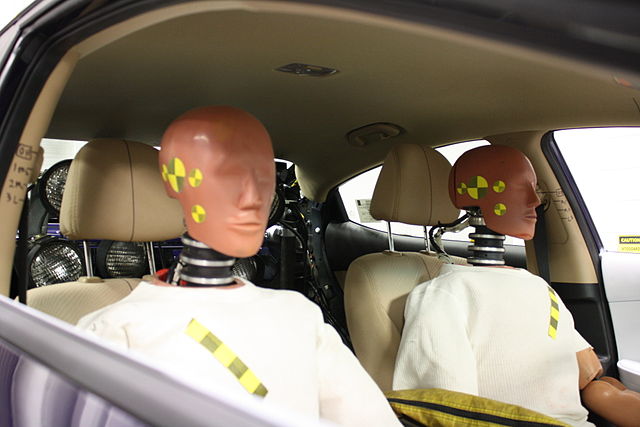In a noteworthy acknowledgment of her contributions to vehicle safety, Swedish engineer Dr. Astrid Linder has been honored with the 2023 Women of Worth (WOW) award by Women’s World Car of the Year (WWCOTY). The recognition celebrates her pioneering efforts in creating the world’s first ‘average female’ crash-test dummy, bridging the prevailing data gap in auto safety standards historically defined by male-centric models.
Over the years, a slew of reports have highlighted how women are at a higher risk of being killed or injured in car crashes. Despite evidence that women’s bodies react differently to car crashes than men’s, the standard dummy used in crash tests till date is one modeled on an average male body’s proportions.
Until now, the most commonly used dummy is based on a standardized 50th percentile male dummy. This equates to a 175 cm ( 5 feet 7 inches) tall man weighing 78 kg which is significantly taller and heavier than an average women. The current dummy for women is roughly the size of a 12-year-old girl; at 149 cm tall (4 feet 8 inches) and weighing 48 kg.
In an effort to remove this bias, Linder worked with a team of engineers to develop a new virtual dummy model, called EvaRID, which sets a new standard for female dummies that stand at an average height of 162 cm (5 feet 3 inches) and weighs 62 kg. Dr. Linder’s work illuminates the need for a more comprehensive approach, considering the unique physiological attributes of women in crash scenarios.
Dr. Linder’s efforts have garnered recognition within and beyond her field. She has received accolades including the EU Champions of Transport Research Competition and the US Government Award for Safety Engineering Excellence. Marta Garcia, Executive President of WWCOTY said, “I’m delighted that Astrid Linder has won the WOW Award. She stood out in the voting and it’s an honor to have her win this award; the only award in the world voted entirely by women motoring journalists.”
Notably, the significance of Dr. Linder’s contributions extends beyond her technical achievements. Her work resonates with the broader principle of diversity and inclusion in scientific research. By addressing a critical oversight in the field, Dr. Linder underscores the importance of encompassing a diverse range of perspectives when shaping safety standards that affect everyone on the road.



